March is Brain Injury Awareness Month 2016, which touches upon topics like traumatic brain injury, concussion, dementia, and Alzheimer’s disease. Traumatic brain injury (TBI) is a rising problem among seniors, so it’s important to prevent TBI as much as possible. Furthermore, numerous studies have come to light, revealing a link between traumatic brain injury and Alzheimer’s disease and dementia, making it even more important to prevent a TBI.
Here is a compilation of Bel Marra Health’s top stories regarding all things to do with the brain and brain injuries to ensure you become aware of the possible threats they bring.
Traumatic brain injury (TBI) risk high in seniors and rising, may initiate Alzheimer-like neurodegeneration
Advertisement
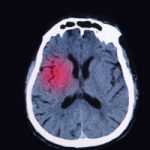 Traumatic brain injury (TBI) risk is high in seniors and continues to rise, prompting researchers to believe that it may initiate Alzheimer-like neurodegeneration. Traumatic brain injury is a major cause of death and disability in the U.S., according to the Centers for Disease Control and Prevention (CDC). Daily, 138 Americans die from TBIs, while many of the survivors are often plagued with lifelong disability and face numerous challenges.
Traumatic brain injury (TBI) risk is high in seniors and continues to rise, prompting researchers to believe that it may initiate Alzheimer-like neurodegeneration. Traumatic brain injury is a major cause of death and disability in the U.S., according to the Centers for Disease Control and Prevention (CDC). Daily, 138 Americans die from TBIs, while many of the survivors are often plagued with lifelong disability and face numerous challenges.
A TBI occurs when there is a blow, bump, or jolt to the head region, disrupting the normal function of the brain. TBIs can range in severity and not all head injuries result in a TBI. A mild version of a TBI is a concussion, which is a common occurrence.
How big is the problem of traumatic brain injury? Well, in 2010 alone, nearly 2.5 million emergency hospital visits were due to a TBI. TBIs contributed to over 50,000 deaths, and over the last decade there has been a 70 percent increase in TBIs. It is important to note though that TBI-related deaths have slightly decreased. Continue reading…
Traumatic brain injury (TBI) linked with buildup of Alzheimer’s plaques
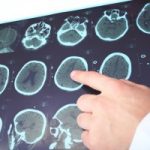
Suffering a traumatic brain injury (TBI) increases the buildup of Alzheimer’s plaques in the brain, as found by a new study that suggests these plaques even form in areas not typical to Alzheimer’s disease.
Previous research has proposed that TBI can contribute to dementia, and this research was the premise the new study was based upon. The researchers found that moderate to severe TBI increased plaque buildup in nine middle-aged participants who were observed over a few months or years.
Study author David Sharp said, “More and more evidence suggests brain trauma can trigger long-term processes that may be harmful, suggesting the window for treatment after a head injury may be much greater than previously thought. Additional research needs to be done to understand these long-term processes, such as amyloid plaque deposition and persistent brain inflammation, and, of course, to develop treatments that target these processes.”
Over the last decade, the rate of TBI cases in the emergency room skyrocketed to 70 percent.
The research team included 28 participants in the study – nine with a past TBI, nine were healthy, and 10 had Alzheimer’s disease. The participants underwent MRI and PET scans. Those with head injuries also underwent diffusion tensor imaging to detect damage to brain cells that occurred after the injury.
Participants with brain injuries and Alzheimer’s disease had plaque buildup in the posterior cingulate cortex, commonly seen in early Alzheimer’s. TBI participants also had plaque buildup in the cerebellum, which is responsible for motor control. Continue reading…
Hypertension drug blocks traumatic brain injury (TBI) inflammation caused by liver
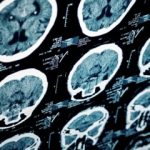
A hypertension drug has been shown to block traumatic brain injury (TBI) inflammations caused by liver proteins. TBI has been shown to affect the body as well as the brain in animal studies. The findings were discovered by researchers at Georgetown University Medical Center.
Researchers found that brain injuries produce an inflammatory response, in particular within the liver. In return, the liver boosts protein production that increases inflammation in the brain, contributing to chronic inflammation, nerve cell death, and reduction in blood flow.
In mice models, the researchers found that using a drug to treat hypertension blocks the production of a particular molecule that can reduce inflammation. When this molecule is blocked, it allows the brain to better heal. Researchers report that over 1.7 million people experience a TBI annually, and uncovering a treatment could greatly improve their health.
Lead researcher, Sonia Villapol, said, “To date, treatment of TBI consists of supportive care and rehabilitation because there has been no way to reduce the inflammatory damage that occurs right after head injury trauma and continuously thereafter. And our findings suggest a treatment for both the brain and body would play a critical role in this chronic inflammatory response.” Continue reading…
Concussion (traumatic brain injury) increases dementia risk in seniors
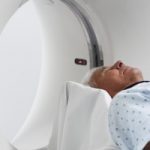
Concussion (traumatic brain injury) increases the risk of dementia in seniors. Roughly 1.7 million Americans experience a minor concussion annually, and nearly 15 percent of those who experience repeated brain injuries suffer from abnormal brain functioning years later.
A concussion can occur due to a sports injury, car accident, or any other injury that occurs to the head.
It’s been found that adults in their mid-50s who experience a traumatic brain injury (TBI) like concussion have a higher risk of developing dementia. First author Raquel C. Gardner said, “I hope that these results will highlight the critical importance of preventing falls in older adults. Fall prevention will not only prevent bodily injury, but may even help prevent dementia.”
Over 66 percent of hospital admittance for traumatic brain injuries is for those over the age of 55. The highest rate of patients with traumatic brain injuries are those over the age of 75.
There are minimal studies that reveal the link between traumatic brain injuries and the risk of dementia, which have yielded conflicting results. The study conducted by Dr. Gardner and colleagues examined this associated risk by including non-TBI trauma (NTT) patients as controls.
The researchers identified 164,661 patients over the age of 55 diagnosed with either TBI or NTT, all without dementia. During the five- to seven-year follow-up period, 8.4 percent of patients with TBI developed dementia compared to 5.9 percent with NTT. Diagnosis of dementia in TBI patients was 3.2 years sooner than the NTT group. The researchers found that TBI was closely associated with a higher risk of dementia. Continue reading…
Concussion (traumatic brain injury) and head impact may accelerate brain aging
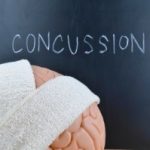
Concussion (traumatic brain injury) and head impact may accelerate brain aging. A concussion is a traumatic brain injury that alters the way the brain functions. Effects of concussion are usually temporary, but continuous head trauma or lack of healing can have long-lasting effects.
Aside from a direct blow to the head, concussions can also be caused due to the head and upper body being aggressively shaken. Some symptoms of concussion include headache, concentration problems, memory problems, balance and coordination problems, and loss of consciousness.
Advertisement
If proper care is taken, a person can fully recover from a concussion, but it’s important to prevent future ones to avoid complications.
Previous research has found that concussions and even milder head impacts can speed up the brain’s natural aging process. When a concussion or a head injury occurs, it causes for signaling pathways in the brain to break down quicker, compared to a person who has never experienced a concussion of head trauma.
Researchers from the University of Michigan School of Kinesiology and U-M Health system looked at college students without a history of concussions and uncovered changes to gait, balance, and the brain’s electrical activity. The effects were seen up to six years after the head injury occurred, even though the changes were subtle and both groups of students acted the same. Continue reading…
